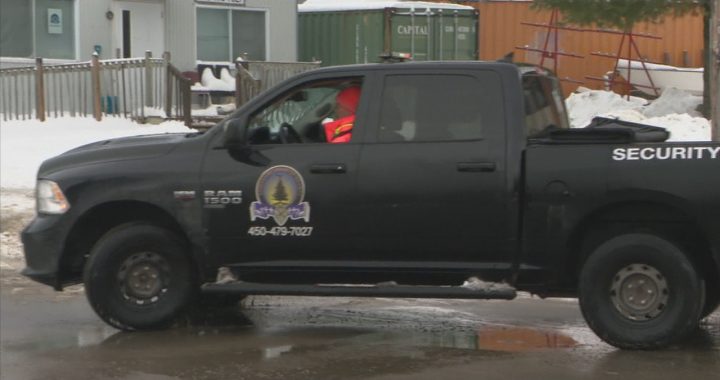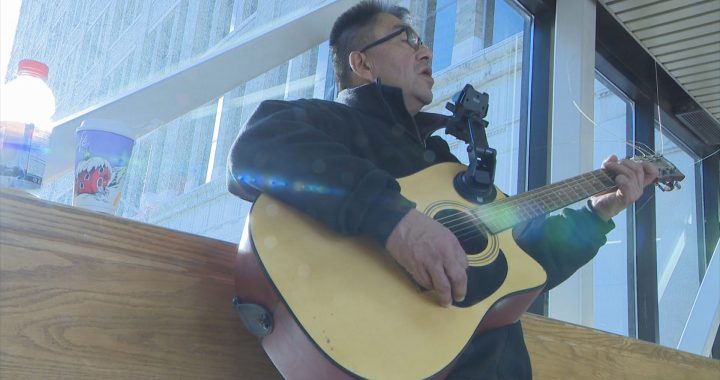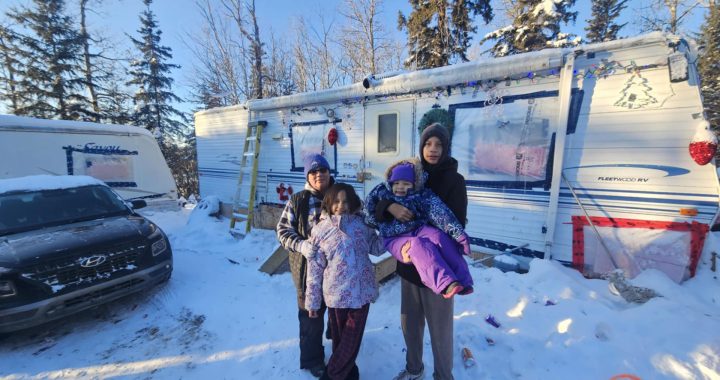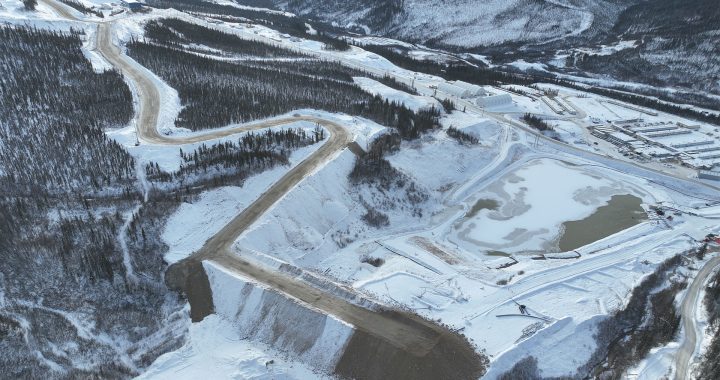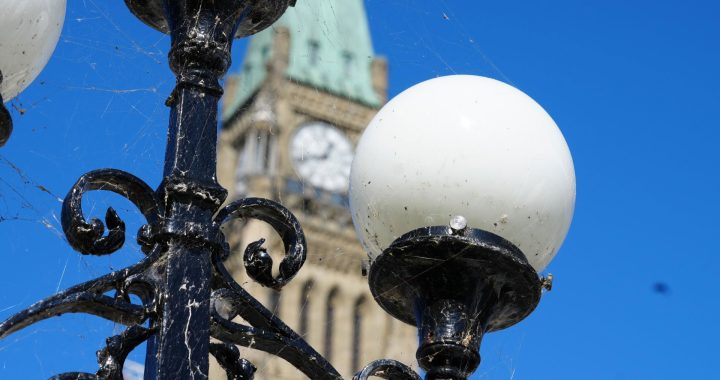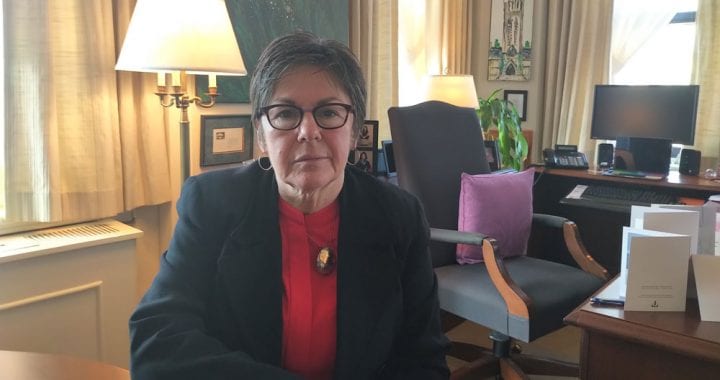After pressure from police and lengthy community deliberations, people from Six Nations of the Grand River largely dismantled a blockade of tires, wood and vehicles that stood for over two weeks on the outskirts of Caledonia, Ont.
“Haudenosaunee Land Defenders began the process of removing barricades from roads surrounding our community. The barricades on the Highway 6 bypass have been removed,” said a release from those at the 1492 Land Back Lane camp.
The camp was established in opposition to Foxgate Developments’ proposed residential development at McKenzie Meadows. It remained standing Thursday despite a court injunction that orders people to vacate the site.
Ontario Provincial Police (OPP) already raided the camp once and could dismantle it again at any time.
Johnathan Wabigwan loaded tires into an excavator bucket, which dropped them off behind the gates of Kanonhstaton (also known as ‘The Protected Place’), where conflict over the proposed Douglas Creek Estates housing development erupted in 2006.
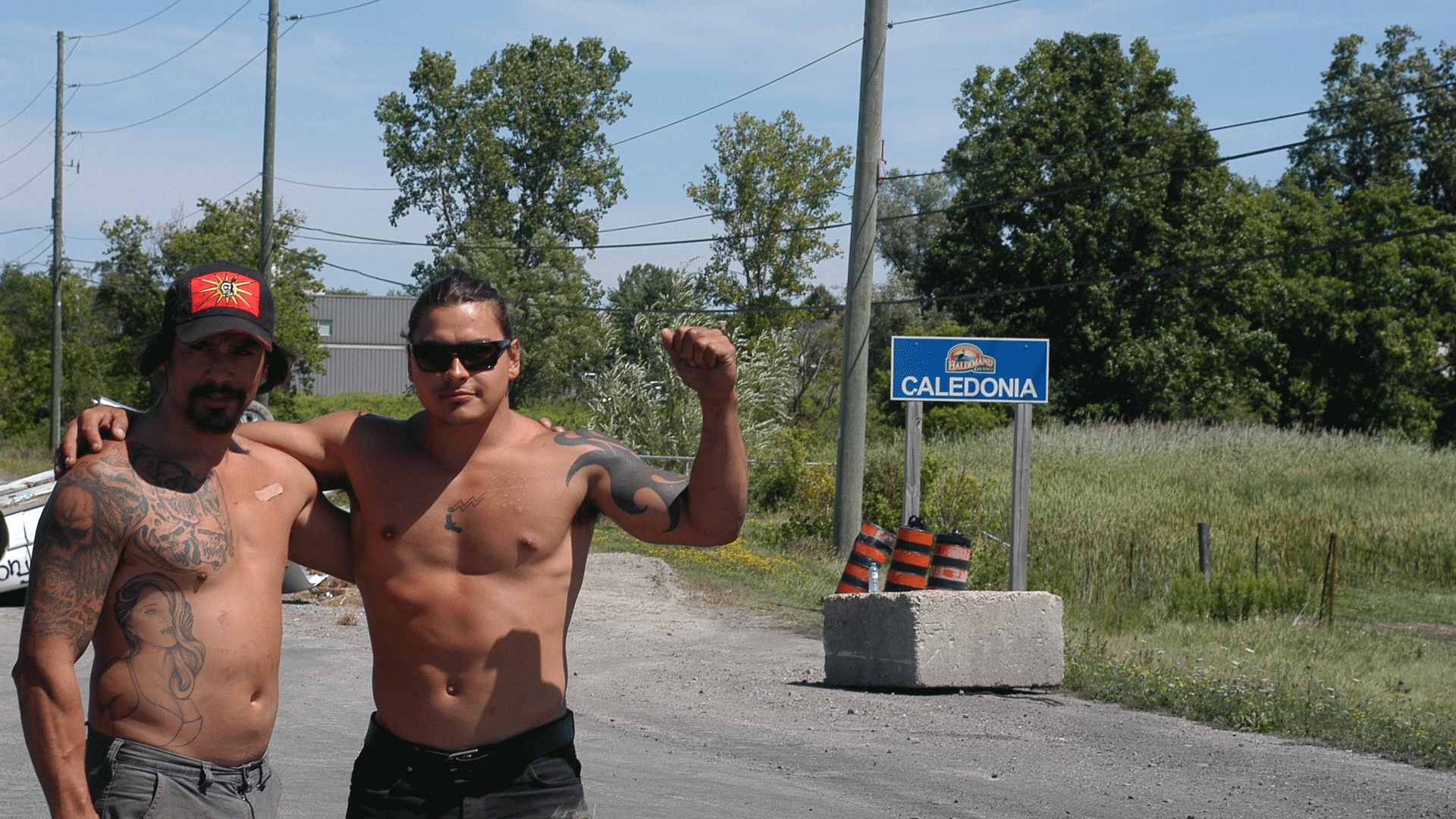
The Anishinaabe man said he came to help out of solidarity with Haudenosaunee.
“Us down there, from Thessalon First Nation territory, in Ojibwe territory, we support it, we’re here,” he said. “We’re going to keep on taking land back. No matter what.”
On Wednesday, people also moved a tent that sat on a hill beyond the barricade off the road, effectively complying with an Aug. 7 blanket injunction preventing people from hindering access to roads in Haldimand County.
The Mohawk Warrior and Haudenosaunee flags were also taken down from the Caledonia sign at the edge of town.
The blockades went up on Aug. 5 after OPP raided the camp occupying McKenzie Meadows. Police arrested nine and maintain they fired a single rubber bullet after people pelted them with rocks.
Land defenders returned later that night. Skyler Williams of Six Nations said the community reached a consensus and decided to take steps toward de-escalation.
“It is in a sign of good faith on our side to be able to say not only Caledonia but our community as well needs to be able to have use of our roadways, and so our intention has never been to hinder anyone’s use of the roads,” he told APTN News. “That was done as a reaction to police violence.”
Later on Facebook Williams added, “The flammable materials that were on argyle street were the only thing that was removed to avert any escalation of the situation there as well as for our communities safety.”

Williams spent the last month offering daily updates online. On Wednesday, he revealed that federal Indigenous Services Minister Marc Miller and Crown-Indigenous Relations Minister Carolyn Bennett agreed to land talks.
APTN has reported previously that this conflict is a present flare-up of a centuries-old dispute over land surrenders and the Haldimand Tract.
Bennett’s office confirmed the ministers sent the letter. A spokesperson said the federal government aims “to address Six Nations’ historical claims and land right issues,” but urged dialogue over the unresolved situation at 1492 Land Back Lane.
“With regard to the McKenzie Meadows Caledonia housing development, we encourage the parties involved to continue to work together through open dialogue to find a constructive, respectful, and positive way forward,” Emily Williams said in an email.
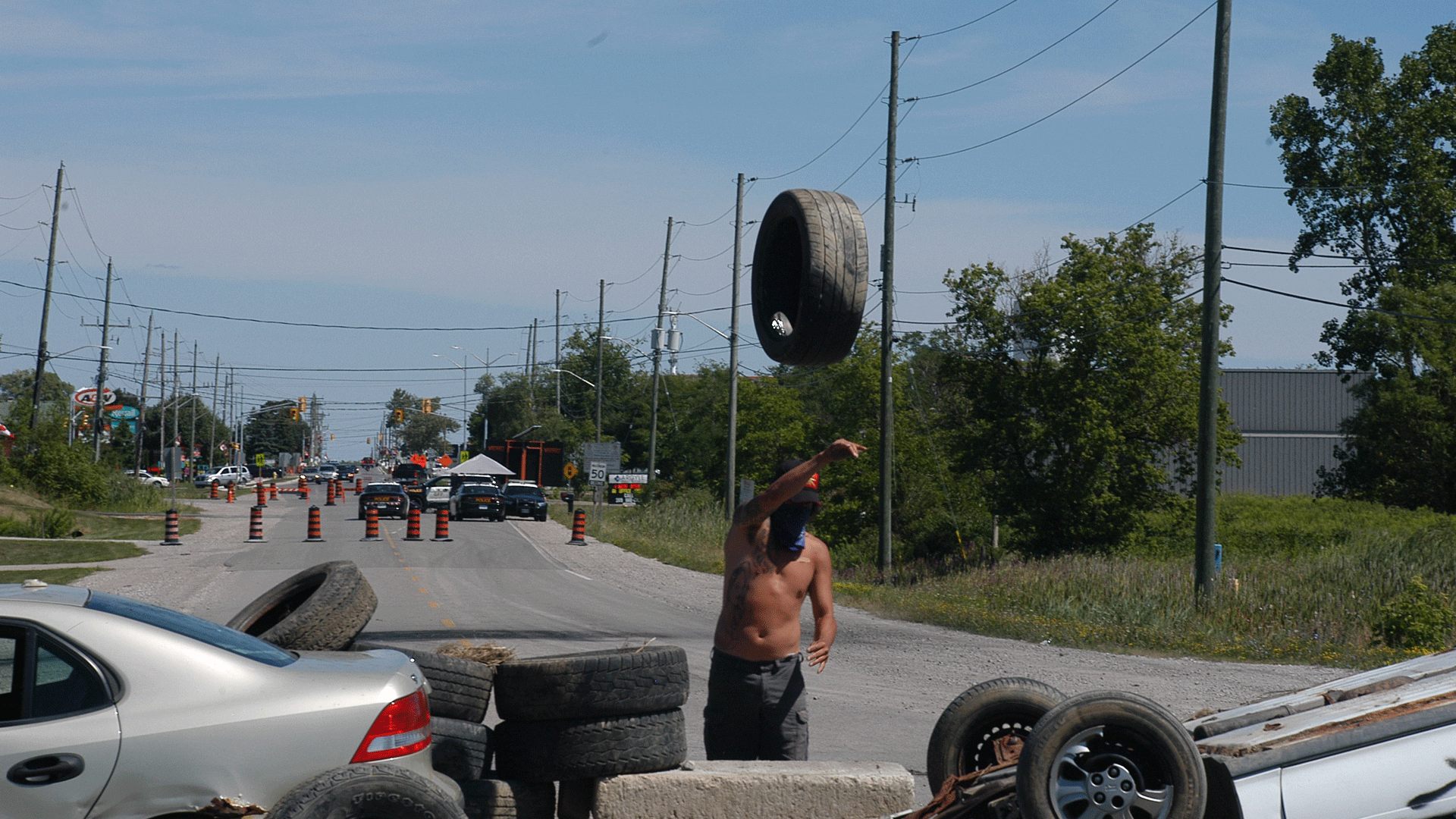
Police explained that roads will need to be inspected before travel resumes. A police barricade remained in front of the Argyle site on Thursday.
Haldimand County Mayor Ken Hewitt called for police to move in and enforce injunctions in a Wednesday statement that pushed back against those who say the land is stolen.
Hewitt drew a hard line in the sand on the topic of McKenzie Meadows in an interview with APTN.
“The land is part of the claim, an underlying claim, and when that claim gets settled Six Nations will be compensated with Crown land and/or money, or both, and that’ll be determined obviously by the courts,” he said.
“That land is owned by a third party and will never be surrendered. Nor would any property in Caledonia or anywhere along the Grand River tract that has third party ownership,” he said.
People at the camp disagreed, and Williams said Thursday he and others will “absolutely” remain at the camp even though the blockades have come down.




